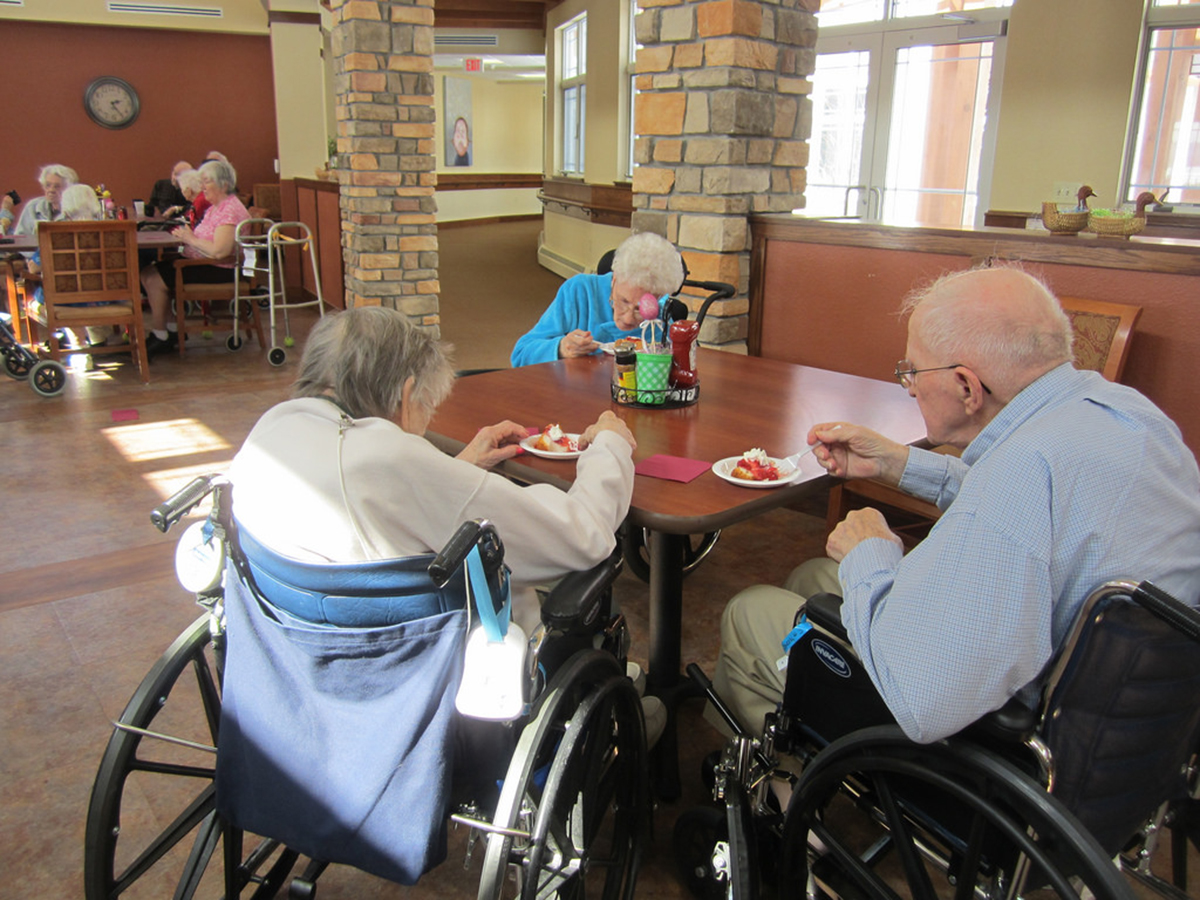Table of Contents
The Gerontological Association of America survey created a profile of the typical abusive nursing home resident. He or she is:
- Younger than most of the other residents, in his or her 60's or 70's instead of her 80's or 90's.
- Less disabled than most of the other residents, still able to walk, still able to inflict injury.
- More likely to suffer symptoms of depression than other nursing home residents.
- More likely to be Caucasian than African-American.
- More likely to live with other patients who have dementia.

The more crowded a facility is, the more likely abuse is to occur. If a lot of people in walkers and wheelchairs have to wait to use an elevator or a doorway, more incidents are likely to occur. And when nursing home residents see other patients being abused, they are more likely to take preemptive action to protect themselves, or to withdraw from social contact.
- If your family member is in a nursing home, visit as often as possible. The more often you visit, the more likely you are to prevent and respond to abuse in a timely fashion.
- Practice respectful communication. Don't blame, state the problem factually, and don't lose your cool. It's never a good idea to put underpaid and overworked staff on the defensive. Instead of saying "Why didn't you protect my father from that lunatic down the hall?" say "There seems to be a problem between my father and the patient down the hall. What can we do to prevent it from happening again?"
- Share your concerns with management, not with nurses or nursing aides. Nurses and aides are more likely to be aware of abuse of patients, but they are not the people who can make decisions about how to deal with it. You have to talk with someone high enough in the administration of the facility to have authority to make constructive changes in your care, or your loved one's care. Usually the social worker is a good place to start.
- Give positive feedback as often as possible. When my father went into a nursing home, at the very end of his life, he was insistent that we give his caretakers Christmas baskets--and in one case, that we give the caregiver two. Showing care and concern about the welfare of caregivers makes it easier for them to do their jobs, and builds up goodwill that can help you when the tables are turned.
When all else fails, families can contact the patient advocate every state has under a federal law known as the Older Americans Act. Federal law also requires nursing homes to provide meeting spaces for family councils, so that families and patients can meet to discuss their concerns with responsible members of nursing home administration.
No matter how many things you do right, however, the limitations of the American system of taking care of its oldest old limits how much you can do to ensure your own or your loved one's wellbeing. Medicaid payments for nursing home care still barely cover expenses. Lots of kind words don't add dollars to nursing aides' paychecks. And patients today live longer but live sicker, making their care more challenging.
See Also: Alzheimer's Dementia: Signs, Symptoms and Treatment Options
Chances are you are going to have issues with your nursing home's level of care, no matter what you do. But you have to keep investing time and energy into making sure you or your loved one is well cared for to get a good result.
- Dong X, Simon MA, Beck T, Farran, C., McCann, J., Mendes de Leon, C, et al. (2011). Elder abuse and mortality: The role of psychological and social wellbeing. Gerontology, 57(6), 549-558.
- Span, P. Easing Tensions in the Nursing Home. New York Times. 19 October 2009.Photo courtesy of Pictures by Ann via Flickr: www.flickr.com/photos/picturesbyann/12455810645
- Photo courtesy of Pedrosimoes7 by Flickr: www.flickr.com/photos/pedrosimoes7/13915699055
- Mind map by SteadyHealth.com

